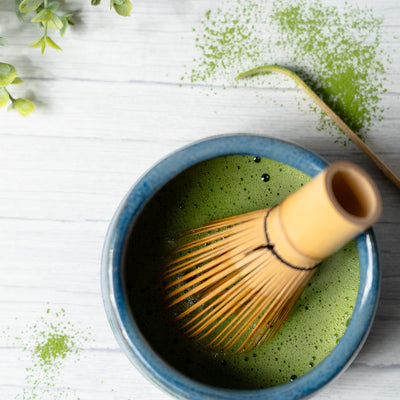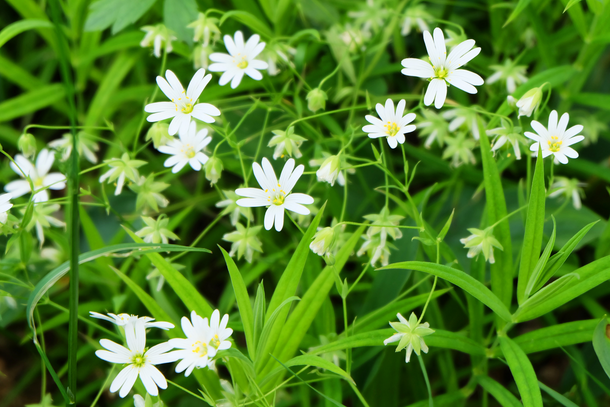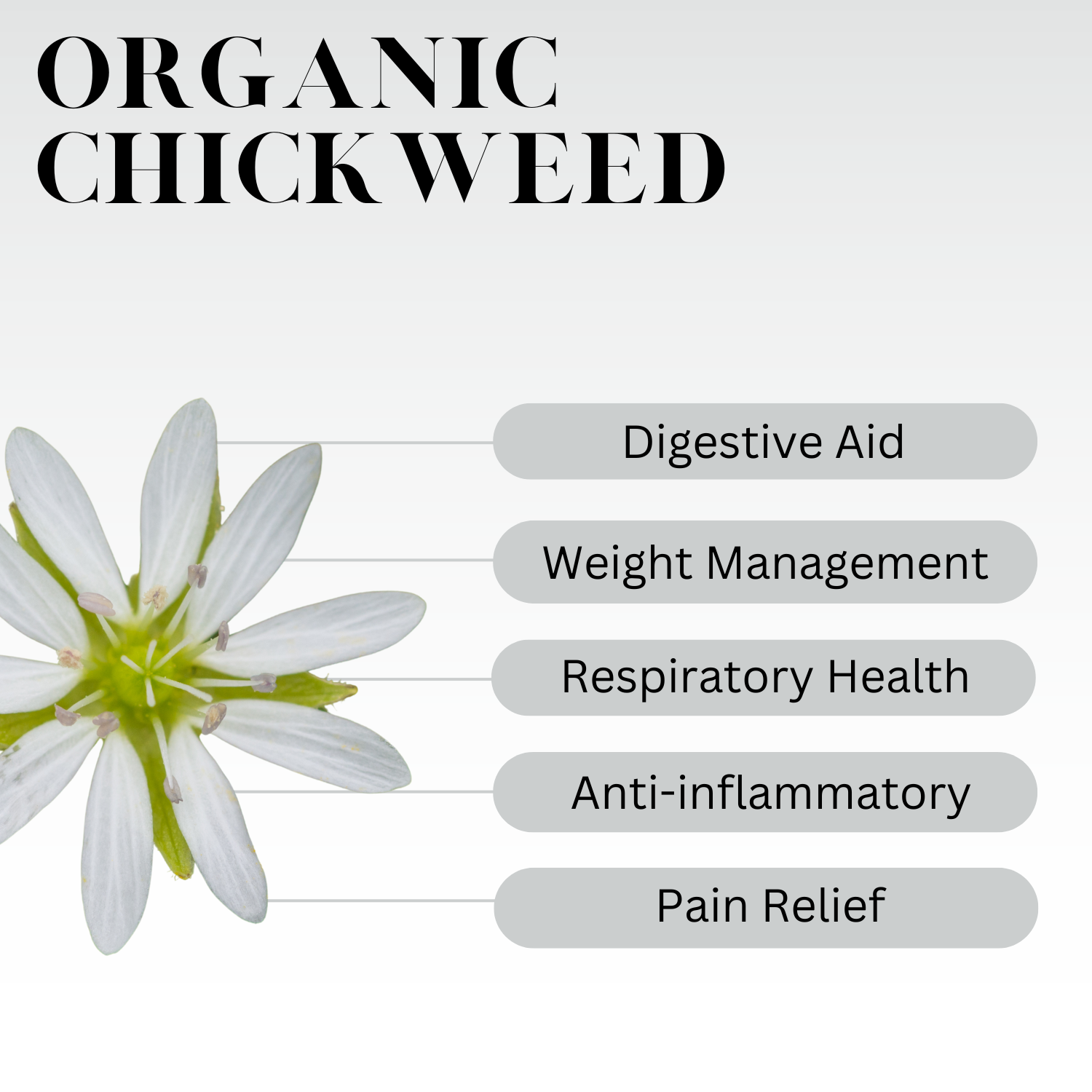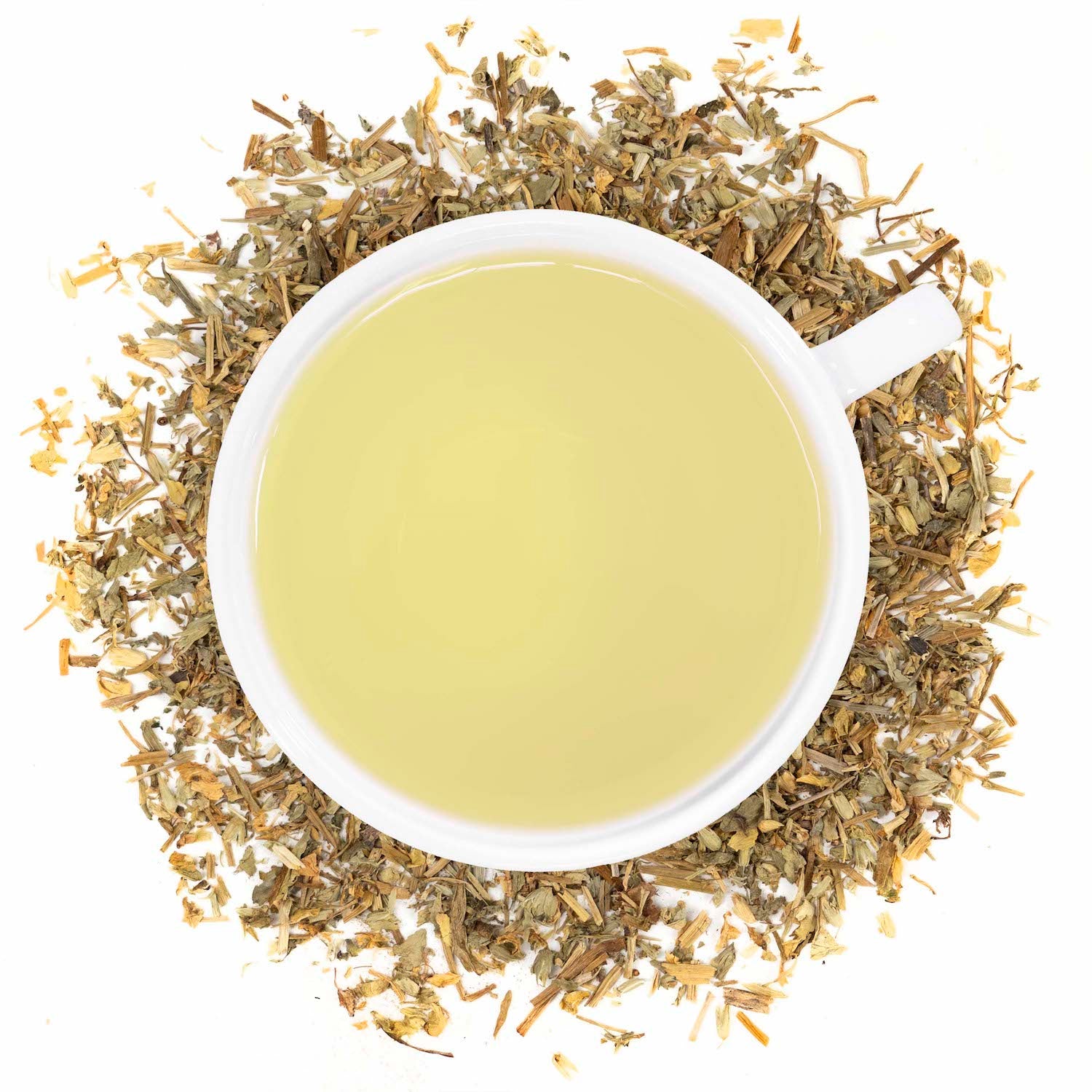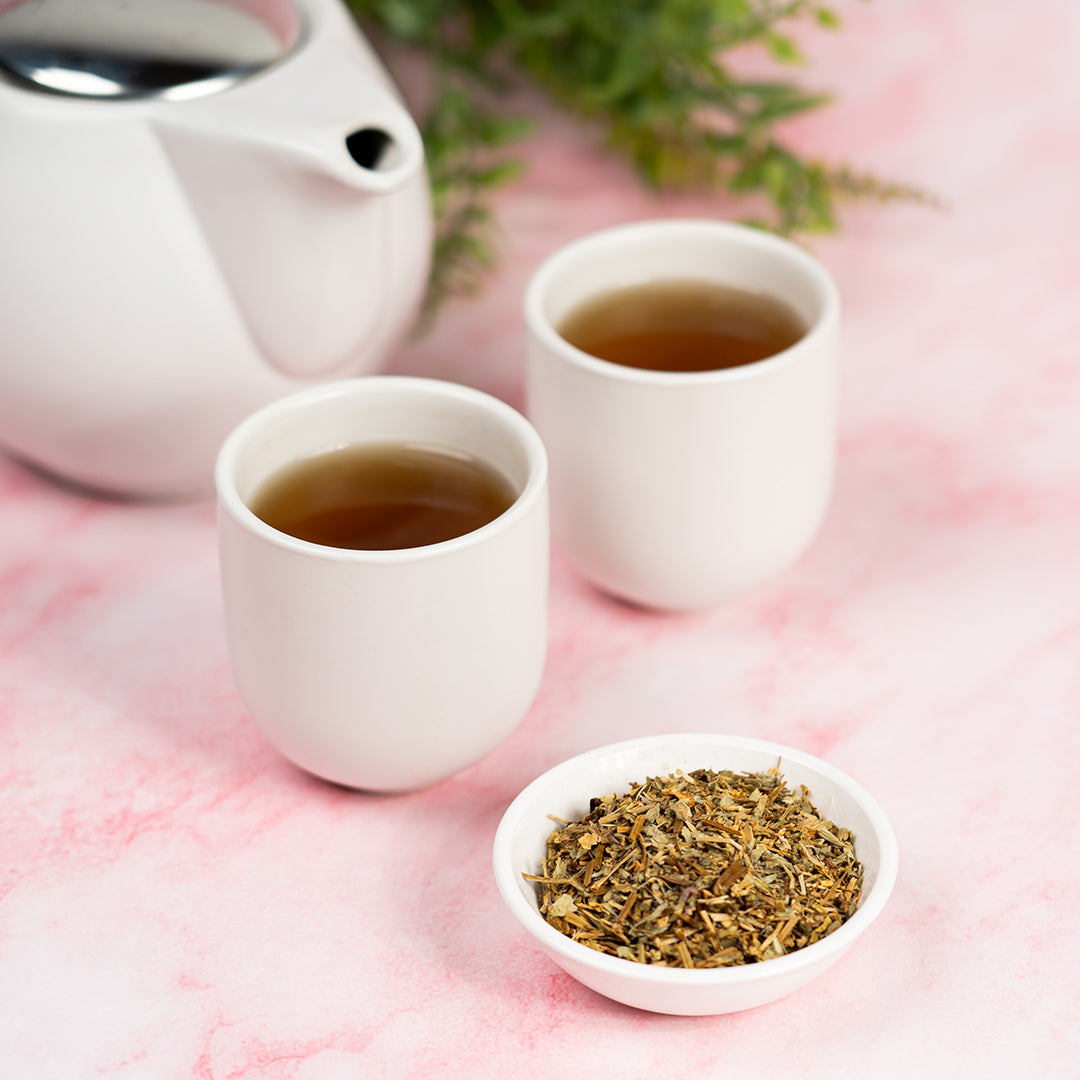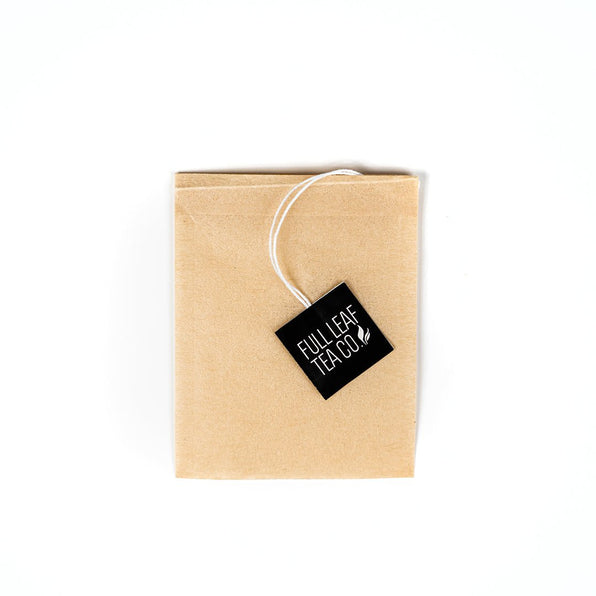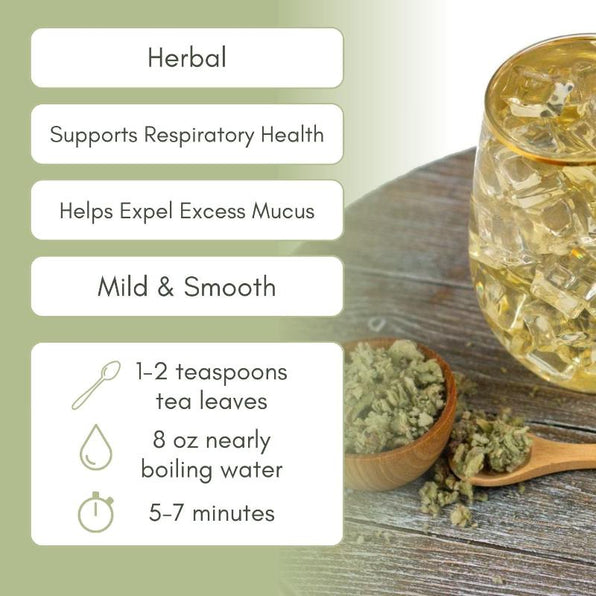What is Chickweed?
Organic chickweed (Stellaria media) is a small, annual herb commonly found in temperate regions around the world. This low-growing plant features small, star-shaped white flowers and bright green leaves. Historically, chickweed has been used for various culinary and medicinal purposes, making it a versatile addition to any herb garden. Organic chickweed is free from synthetic pesticides and fertilizers, ensuring that its natural properties remain intact and beneficial.
Rich in vitamins, minerals, and antioxidants, organic chickweed has been praised for its potential health benefits. It can be consumed fresh in salads, used as a tea, or applied topically to the skin. This herb has been utilized in traditional medicine for centuries, particularly for its soothing and healing properties.



